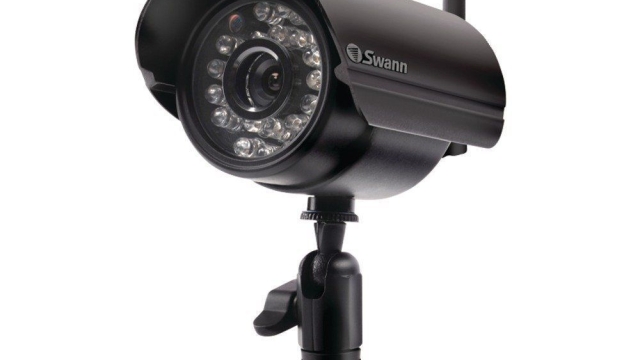In today’s world, the presence of security cameras has become increasingly commonplace, transforming the way we perceive safety and peace of mind. Whether placed in homes, businesses, or public spaces, these devices act as a watchful eye, continuously monitoring our surroundings and providing an added layer of protection. They not only deter potential criminal activity but also help ensure a sense of security among individuals and communities.
The impact of security cameras extends beyond mere surveillance; they serve as a reassurance that someone is always watching, even when we are not. This evolving technology has made it easier than ever for people to keep their loved ones and properties safe, fostering a culture of vigilance and accountability. As we explore the myriad benefits of security cameras, it becomes clear that they are more than just tools for observation; they are essential components in the pursuit of safety in an ever-changing world.
The Evolution of Security Cameras
The history of security cameras dates back to the mid-20th century when closed-circuit television (CCTV) systems were first developed. Initially, these systems were bulky and expensive, limiting their use primarily to high-security areas and large businesses. The cameras produced grainy images, and the technology required significant expertise to operate. Despite their limitations, these early security cameras provided a novel solution for monitoring and deterring criminal activity.
As technology advanced, security cameras became more accessible and effective. The introduction of digital video technology in the 1990s revolutionized the industry, allowing for clearer images and the ability to record footage for longer periods. With the rise of the internet, IP cameras emerged, enabling remote viewing and control from anywhere in the world. This shift further expanded the applications of security cameras in residential areas, businesses, and public spaces, enhancing overall safety and surveillance capabilities.
In recent years, the integration of artificial intelligence and machine learning has brought about a new era for security cameras. Smart cameras can now analyze footage in real time, detect suspicious activities, and send alerts to users instantly. The development of cloud storage solutions has also made it easier to manage and retrieve vast amounts of recorded footage. As security cameras continue to evolve, they not only foster increased safety but also provide peace of mind for individuals and communities, ensuring that eyes are always watching over them.
Enhancing Public Safety
Click Here
Security cameras play a crucial role in enhancing public safety by acting as a deterrent to criminal activity. The presence of cameras in public spaces often discourages potential wrongdoers, knowing they are being watched. This surveillance creates an environment where individuals may think twice before engaging in illegal behavior, leading to a decrease in crime rates in monitored areas. Communities that invest in security camera systems often experience a significant reduction in vandalism and theft, fostering a sense of safety among residents.
In addition to deterring crime, security cameras provide invaluable evidence in the event of an incident. With high-definition video footage, law enforcement can accurately assess situations and identify suspects. Such evidence not only aids in the prosecution of offenders but also helps exonerate innocent individuals caught in the wrong place at the wrong time. This ability to provide clear and undeniable proof strengthens the justice system and reassures the public that safety measures are being taken seriously.
Moreover, the integration of security cameras with advanced technologies, such as artificial intelligence and motion detection, enhances their effectiveness in promoting safety. These systems can automatically alert authorities to suspicious activities in real-time, allowing for immediate responses. This proactive approach to security ensures that help is dispatched quickly when needed, ultimately leading to safer neighborhoods and public spaces. As cities and towns adopt these technologies, the role of security cameras in enhancing safety continues to evolve, providing peace of mind to communities everywhere.
Privacy Concerns and Ethical Implications
As the presence of security cameras increases in public and private spaces, concerns about privacy become more pronounced. Individuals may feel that their every move is being monitored, leading to a sense of unease. The balance between ensuring safety and maintaining personal privacy is a subject of ongoing debate. Many people worry that the surveillance might be overly intrusive, reaching into areas where they expect a reasonable level of privacy.
Moreover, the ethical implications surrounding the use of security cameras extend to issues of consent and data usage. In many cases, people are recorded without their explicit consent, raising questions about their rights in spaces where they expect confidentiality. There is a growing call for clear guidelines and regulations regarding how footage is stored, who has access to it, and how long it can be kept. These ethical concerns highlight the need for transparency in surveillance practices to build trust within communities.
Finally, the potential for misuse of surveillance footage represents a significant ethical dilemma. Instances of selective recording, data leaks, or unauthorized sharing can lead to violations of individual rights. As security technology evolves, so must the frameworks surrounding its use. Striking a balance between enhancing safety through surveillance and protecting personal liberties is crucial to addressing these privacy concerns and ensuring that the implementation of security cameras is responsible and ethical.
